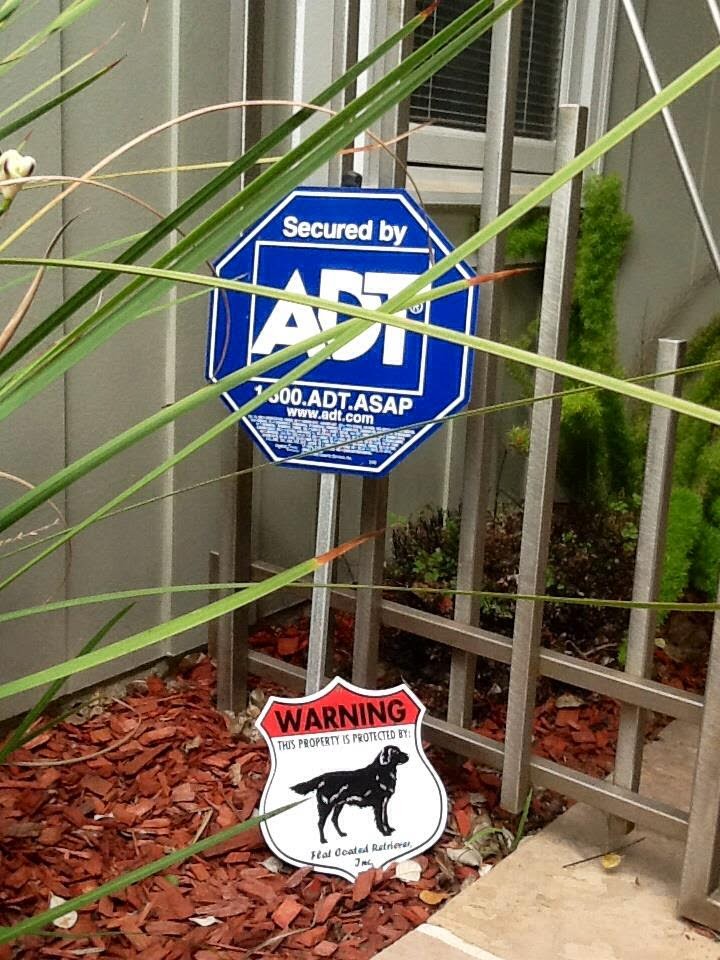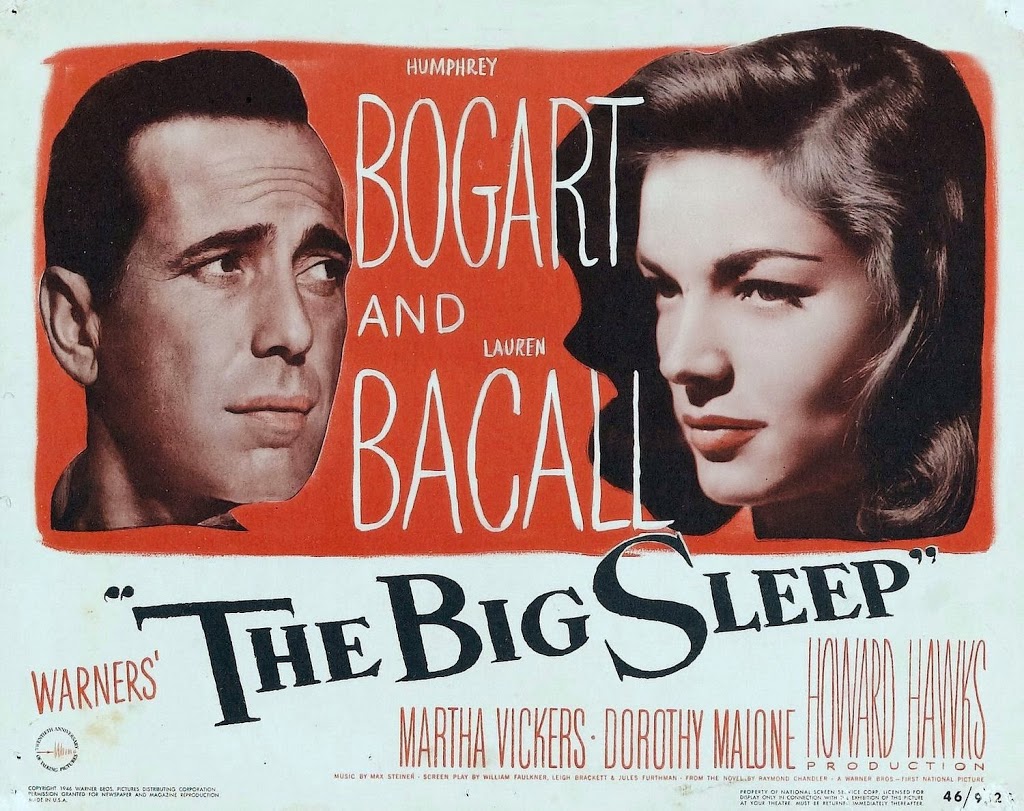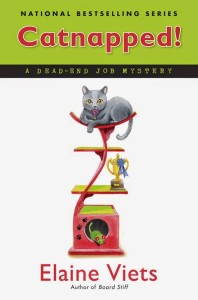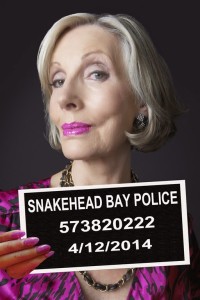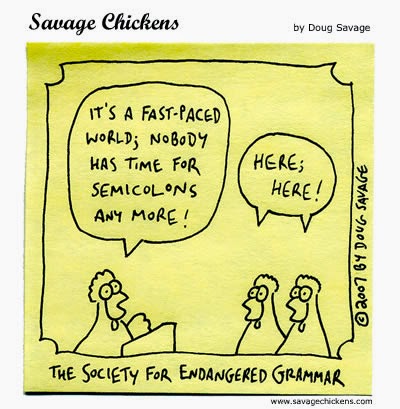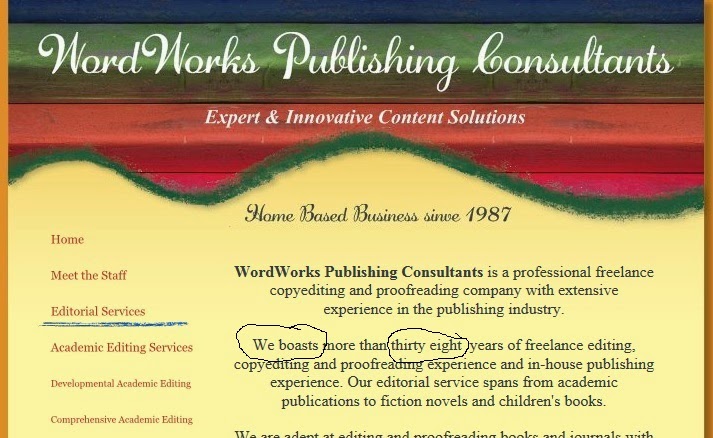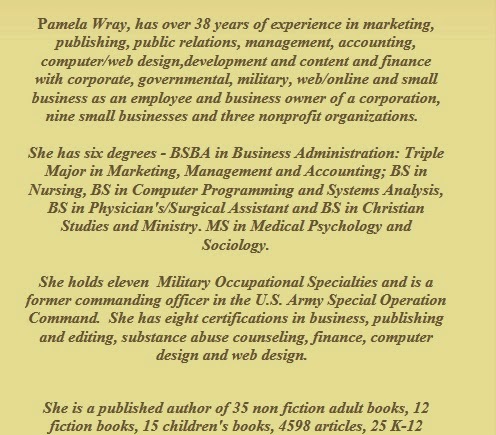 by Jodie Renner, editor, author, speaker
by Jodie Renner, editor, author, speaker
An incident happened to me recently that got me thinking about all the pitfalls that aspiring authors face today when seeking professional assistance to get their books polished and ready to self-publish or send to agents.
Most of us know about the vanity publishers who can easily take thousands or even tens of thousands of dollars to prepare and publish your novel, whether it’s well-written and marketable or not – they don’t care, as long as they get your money.
But what about other publishing consultants and editors? There are lots of excellent, highly reputable editors and consultants out there, but unfortunately there are also some poseurs, predators, and plagiarizers. I found that out firsthand about a week ago, and it made me worry about all the unsuspecting aspiring authors who are getting taken in by sites posing as experts in editing or publishing.
If you’re self-publishing or trying to get your book ready to send to agents, scroll down for some concrete tips for finding a creditable, competent, knowledgeable freelance editor for your book.
Here’s my recent story: A writer I’d never met contacted me on March 28 to tell me that a website, WordWorks Publishing Consultants, had plagiarized a bunch of testimonials from my website HERE and changed the names and is passing them off as reviews of HER editing HERE. I was shocked and angry. I’d worked damn hard to deserve those testimonials, and my clients had put in time and effort to compose them!
I told Preditors & Editors about it, and someone on Facebook suggested I contact Victoria Strauss of Writer Beware about the offending website. The name Pamela Wray rang a bell for Victoria, who researched this website and person further and found out that the pilfering of my testimonials was just the tip of the iceberg – most of the “accomplishments” and claims on that site are fraudulent. Victoria wrote an excellent expose of the site HERE. I also wrote about it briefly HERE on Crime Fiction Collective. (I’ve taken lots of screen shots, but I see the site is still up there, unchanged, today – over a week later.)
ALL of the testimonials under “Editing” on that website are lifted verbatim from my website, with only my name replaced by hers, and the names of my clients LJ Sellers, Allan Leverone, A.M. Khalifa, and Tom Combs replaced by fictitious clients of hers, including Random House and “Simon & Shuster” (her spelling for Simon and Schuster)!
And under “Writing and Content,” she has testimonials from big names like Bill Gates and Steve Jobs, among others! As if! If she did, she’d be making big bucks and her website wouldn’t be so cheesy-looking, and she’d be able to afford a proofreader to fix the myriad of typos and grammatical errors throughout the site – not good for someone advertising as an editor with 38 years of experience!
For example, under “Editorial Services” it says “We boasts more than thirty eight years of…experience”. Besides the “we boasts” (which sounds like a non-native English speaker to me), it should be “thirty-eight,” with a hyphen.
And can you pick out the grammatical error and the formatting error within the first three words of the bio of this “editor”?
Among other “accomplishments,” Pamela Wray claims to have written and published 62 books (and ghost-written another 60), yet a search on Amazon.com reveals only 2 amateurish-looking children’s books under that name, and those are co-written.
And I can’t help but wonder about the spelling “Pame” (rhyming with “shame”) instead of “Pam” as a nickname for Pamela, especially for an editor. Hmmm…
Unfortunately, not every aspiring author will notice all the errors in this website or have the time to do the research, as did Victoria Strauss and others who responded with additional info in the comments under her expose. So a lot of hopeful writers may not realize that a great many of Pamela Wray Biron’s claims are false. It angers me that many trusting writers will be taken in and could lose – or have lost – a lot of money, for either poor editing or no editing at all.
Here are some tips for weeding out incompetent or fraudulent editors for your manuscript:
1. Read their websites over carefully. Wild, exaggerated claims should be a red flag! For example, in that fraudulent site, besides the so-called testimonials from Bill Gates, etc., huge publishers like Random House and Simon & Schuster don’t use freelance editors – they have their own in-house editors. Nor would they write that kind of personalized testimonial, as if from the author.
2. Check for strong English writing skills on the websites. If spelling and grammar aren’t your strong suits, have someone who’s got an eagle eye for typos and grammatical errors comb the websites for you.
3. If you’re looking for an editor for your novel or short story, check to be sure they know about current effective fiction techniques such as plot, pacing, character arc, point of view, natural-sounding dialogue, and showing instead of telling.
There’s no point in paying for a basic copyedit or proofread of a whole manuscript, when it may need a developmental, content, and/or stylistic edit and significant revisions first. Entire chapters may need to be deleted, condensed, or significantly altered to make the story stronger, so it would be a waste of money to get the whole manuscript proofread before it’s been analyzed by an expert in fiction writing, or at least by a savvy critique group. After you’ve had “big picture” advice and completed the content and stylistic revisions, you can then get the final draft checked over by a basic proofreader at a lower rate.
3. Get references or follow through on the names listed under their testimonials. I link to the author’s website or other contact info under my testimonials so potential clients can click through to their websites, blogs, or Facebook pages, and contact them if they wish.
4. Contact at least 3-4 potential editors and ask for sample edits of your work. Don’t accept a pre-prepared sample edit of some other person’s document. Who knows who actually edited it? And I would never share a sample edit from a previous client’s work! Nobody wants their original errors and the corrections up on somebody’s website or sent out for others to see!
Get a sample edit of at least the first 5-10 pages of your manuscript, even if you have to pay for it. Then ask someone you trust who’s knowledgeable in English grammar and spelling as well as effective fiction techniques to check it over. Or contact an established editor to check over the sample edit for you. Better to pay $25-$50 or so upfront to establish the competence of the editor than to pay hundreds or thousands of dollars for a poor edit – or no edit at all! I’ve heard horror stories of writers paying thousands of dollars and it’s a year later and they still haven’t received any edits.
5. Don’t pay large amounts of money upfront – not even for half of the job, unless you’re absolutely certain of the competence, dedication, and integrity of the editor. Sure, pay a small fee in advance for a sample edit – it’s money well-spent and could save you a lot more – but not a large sum to a basically unknown editor.
My method is to edit in sections, with each section going back and forth a few (or sometimes many) times, and my clients pay me in instalments as we go along. That way if it’s not working out for either party, if we’re just not on the same page, we can part ways, and nobody owes anybody anything.
Bottom line: be sure to do your homework before parting with your hard-earned money and entrusting your valued manuscript to an editor!
And click HERE for my article with advice for finding and attracting top-notch, highly in-demand freelance editors.
Jodie Renner is a freelance fiction editor and the award-winning author of three craft-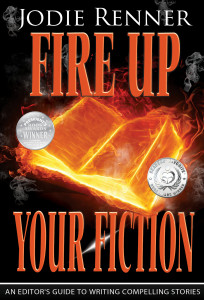 of-writing guides in her series An Editor’s Guide to Writing Compelling Fiction: Captivate Your Readers, Fire up Your Fiction, and Writing a Killer Thriller. She has also published two clickable time-saving e-resources to date: Quick Clicks: Spelling List and Quick Clicks: Word Usage. You can find Jodie at www.JodieRenner.com, www.JodieRennerEditing.com, her blog, http://jodierennerediting.blogspot.com/, and on Facebook, Twitter, and Google+.
of-writing guides in her series An Editor’s Guide to Writing Compelling Fiction: Captivate Your Readers, Fire up Your Fiction, and Writing a Killer Thriller. She has also published two clickable time-saving e-resources to date: Quick Clicks: Spelling List and Quick Clicks: Word Usage. You can find Jodie at www.JodieRenner.com, www.JodieRennerEditing.com, her blog, http://jodierennerediting.blogspot.com/, and on Facebook, Twitter, and Google+.
 Second, when I do get writer’s block, I turn to my co-writer for the answer. OK, so the second reason is not something every writer has to fall back on. Lucky me.
Second, when I do get writer’s block, I turn to my co-writer for the answer. OK, so the second reason is not something every writer has to fall back on. Lucky me.

